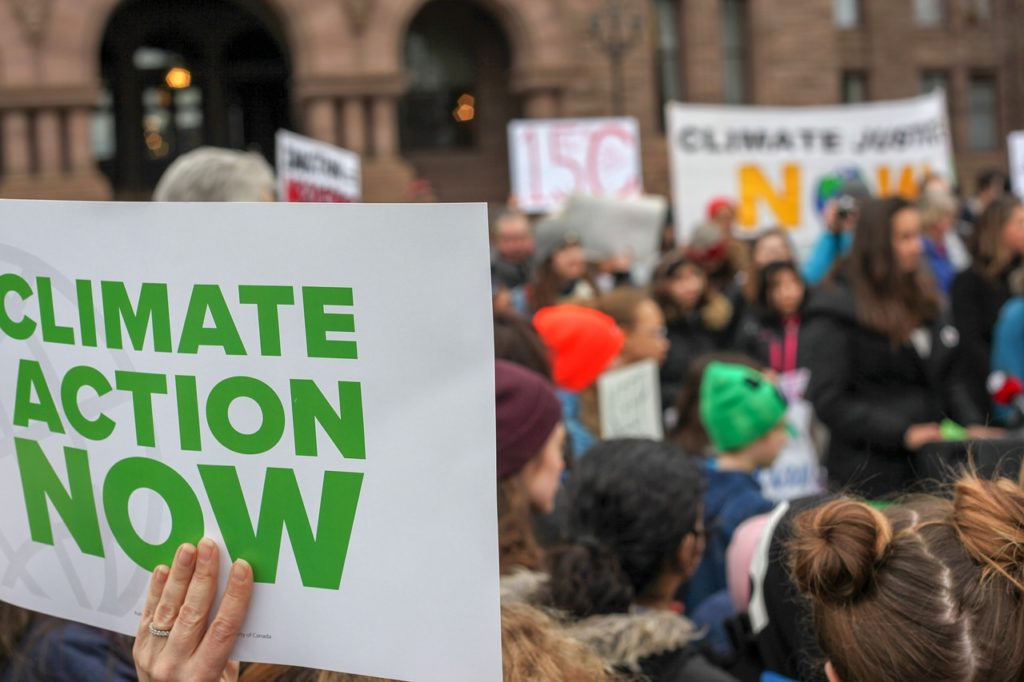The efforts that are being made by the government to combat the climate crisis are overshadowed by the fact that it is not taking the crisis seriously, despite knowing how to deal with crises, climate activists argued.
On Sunday, Belgium's climate movement, lead by the Klimaatcoalitie, is taking to the streets of Brussels for the first time after one and a half years, to call on the government to improve its strategy.
"A huge amount has happened since the last major Klimaatmars before the crisis, and although a lot of political action has been taken, the targets set by our government are not ambitious enough," Zanna Vanrenterghem, Greenpeace Belgium's representative for the Klimaatcoalitie, told The Brussels Times.
She added that "it is one thing to talk about climate, and another to take concrete action."
This opinion was mirrored by Belgian climate activist Anuna De Wever, who argued that a lot of policies that are implemented are inconsistent, both on a national and European level and that they do not address the crisis head-on.
"Politicians aren't changing the system, they are just proposing some measures here and there while a lot of other policies are still in place that makes the climate crisis worse," she told The Brussels Times.
According to the judgment made by the Brussels Court of First Instance during Belgium's Climate Case, the Belgian authorities have a negligent climate policy, while the regions are failing to collaborate on the issue.
Related News
- Climate March: STIB will be free on Sunday 10 October
- Rising sea temperatures destroyed 14% of world's coral reefs
- Google Maps will soon suggest most eco-friendly route
"Despite the efforts being made by Wallonia and Brussels, Flanders is completely obstructive and is acting like a toddler who just doesn't feel like doing anything," Vanrenterghem said.
According to the Klimaatcoalitie, the Belgian government needs to set more ambitious targets and to ensure that its climate policy is as fair as possible, as it is often the "most precarious people that are hit the hardest by the effects of the climate crisis."
"They often also carry the biggest costs. Look at the July floods, they happened in some of the most precarious neighbourhoods, where most people already had very little and then lost everything," Vanrenterghem said.
De Wever added that Belgium has a "huge responsibility," as it has the resources to do a lot more. "At the moment, we're not doing enough, and that's only because the climate crisis is not a priority for politicians right now."
Comparing crises
If ever the government could be forgiven for taking its time to effectively deal with a crisis of this magnitude, the pandemic has taken away its right to make excuses, De Wever and Vanrenterghem argued.
"We have seen that politicians can deal with a crisis and that there is money to take action and implement measures when needed, so that is a huge metaphor for us to show how politicians could actually be capable of dealing with the climate crisis," De Wever said.
Vanrenterghem argued that, with Covid-19, the government identified the problem and immediately shot into action with a (largely) coherent and science-based approach, but that it is hugely procrastinating when it comes to the climate crisis.
"The pandemic proved that if we want it bad enough, we can change things, however, it is now clear the political base does not want it hard enough and it does not see the urgency of the climate crisis," Vanrenterghem said.
Vanrenterghem recognised that tackling the climate crisis requires a very different tactic and other solutions that go further than wearing face masks and staying at home.
People are 'enormously concerned'
As much as the government is failing to tackle the crisis successfully, the climate change subject is more alive than ever among citizens.
Vanrenterghem stressed that, until July's floods in Belgium, people couldn't really imagine what the consequences would be if no action is taken, whereas this showed people how "abrupt the climate crisis is, and that it could impact anyone."
"This was proof that climate change is happening here and now, also in Belgium, where we thought it would happen later," said De Wever, adding that the floods "really presented an opportunity for politicians to take action."
According to the latest Eurobarometer study conducted by the European Commission, almost 82% of the Belgian population thinks climate change is a very serious problem, which is "in part because of those marches, which help raise awareness," Vanrenterghem said.
"This is what the figures show, that irrespective of our own personal and emotive view on this, the figures show that people are enormously concerned about this and do see the seriousness of it, unlike politicians," she added.
Vanrenterghem stressed that now more than ever, politicians need to put their words into action, adding that it is "unacceptable for politicians to simply say that climate change is important to them and then do nothing in return."
"People have experienced Covid, we've had massive floods, we've seen a summer where the climate crisis swept through large parts of the world and that's why we need to be back on the streets," Vanrenterghem concluded.
The climate march will start on Sunday at 1:00 PM at the Brussels-North railway station, and will The march will pass through the inner ring road and Rue de la Loi, to end in the Parc du Cinquantenaire.

